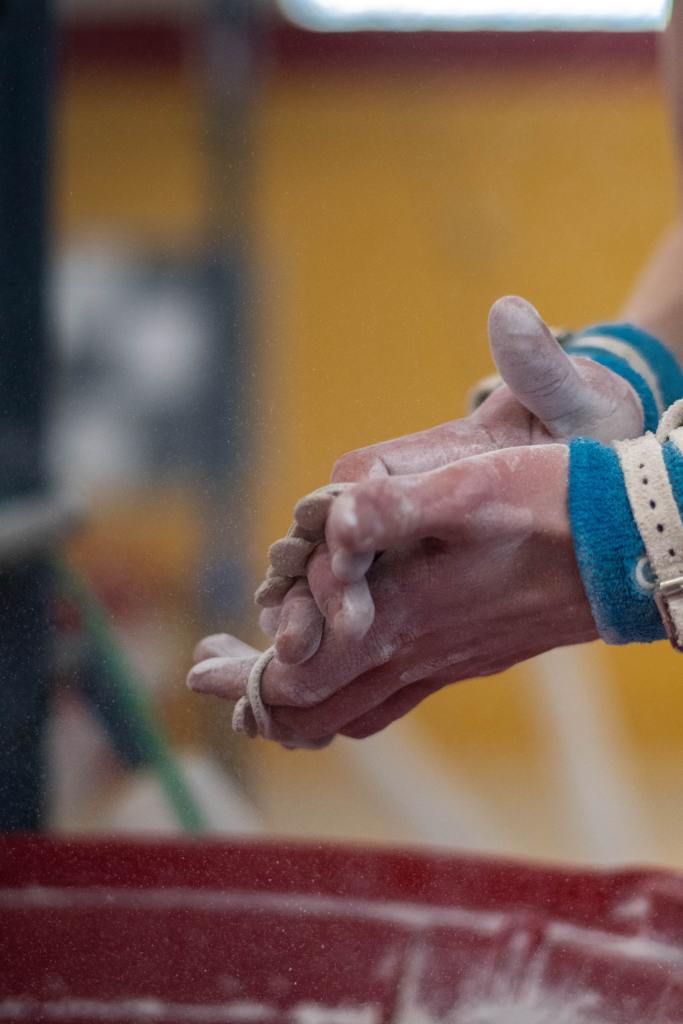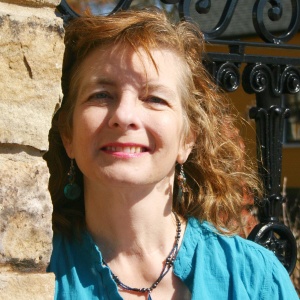
Can we handle another opinion on Simone Biles? Spoiler—I follow gymnastics, having been a gym mom for years. My daughter follows it in extreme detail. We know all the sides. So I don’t come to this imbroglio as an armchair pundit, and I come with zero tolerance for criticism of this courageous woman.
I do come, though, with a conviction that Ms. Biles, and the discussion following her decision to withdraw from competition, mirror a debate in our Christian culture over what strength is and who defines it.
I posted this inquiry on twitter—one I didn’t expect to get so much discussion.

The answer appears to be circular. Boys don’t go into it because our culture holds up football as the ultimate goal for male fame. Basketball is good second option for popularity.
Sports and Other Things
When boys don’t choose a sport, funds for it go down in the most important arenas of training. As kids don’t see any heroes emerge in those sports, fewer find them interesting. Especially when they’re as difficult as gymnastics with excruciatingly slow gains. And the cycle perpetuates itself.
Even as we had the mild debate, some declared—“Boys just prefer contact sports. They’re wired for it.” Are they? Or is it that our culture refuses to value the things boys and men can do that don’t fall into the “manly” categories we’ve preassigned? This, obviously, doesn’t only apply to sports.
Is it coincidence that the people decrying Ms. Biles are mostly white men who want to replace her as GOAT with—other white men? Could there possibly be anything else going on there?
Tweet
The debate rages in the church, most importantly for my, and I’m guessing your, purposes. What makes a person strong? How do we define courage? A large contingent of popular teachers want to answer those questions in a very unhealthy way.
Strength in the Church
Strength, to this demographic, means domineering, winning, ignoring personal pain, and refusing to value compassion. It’s the John Wayne paradigm, as Dr. Kristin DuMez has so perfectly explained. It’s what many of us have been listening to in CT’s podcast about Mars Hill.

This popular mindset in the church doesn’t only devalue a courageous gymnast. It’s more a symptom of a pervasive illness of which, sadly, conservative church men are usually the carriers. It devalues the Christlike perspective that gold medals and power and lack of self-examination don’t make you a whole human being.
Choosing Whole
Whole, shalom humanity comes from an entirely different kind of strength.
- The kind that says “no” to winning when it would destroy your soul (or your body, family, etc)
- The kind that chooses to walk away, when all of you wants to stay, if staying would violate who you are and what you need
- The kind of strength that offers the opportunity to shine to someone else, when you could hoard that chance to yourself
- The kind that chooses the good of the group over the glory for yourself
- Strength that is willing to take the boos of the crowd rather than violate your conscience
- Strength that sends a message to others that you are worth more than what you do
As most overwhelmingly support Ms. Biles, there is that contingent. That group that demands—if you won’t dance to the tune we play, you don’t deserve our praise. If you won’t conform to our definitions, we will replace you with someone who will. (Not surprisingly, a black woman never will be able to meet their definitions.)

As so many gratefully praise Simone for her courage, what if we do the same for our leaders in the church? What if we throw off those terrible, unhealthy definitions of strength, power, and courage, and embrace the path she has shown us? The path Christ showed us, long before this.
What if we begin to value choosing to go small rather than big? Giving away our power? Holding enough of ourselves back for our mental and physical health, our families, and our souls? Declaring that we are more than what we do, and everyone gets a chance to do what they do best?
Tweet
Being the GOAT, in ministry or in sports, is’t worth as much as we imagine. Choosing whole is where the real strength is.








































